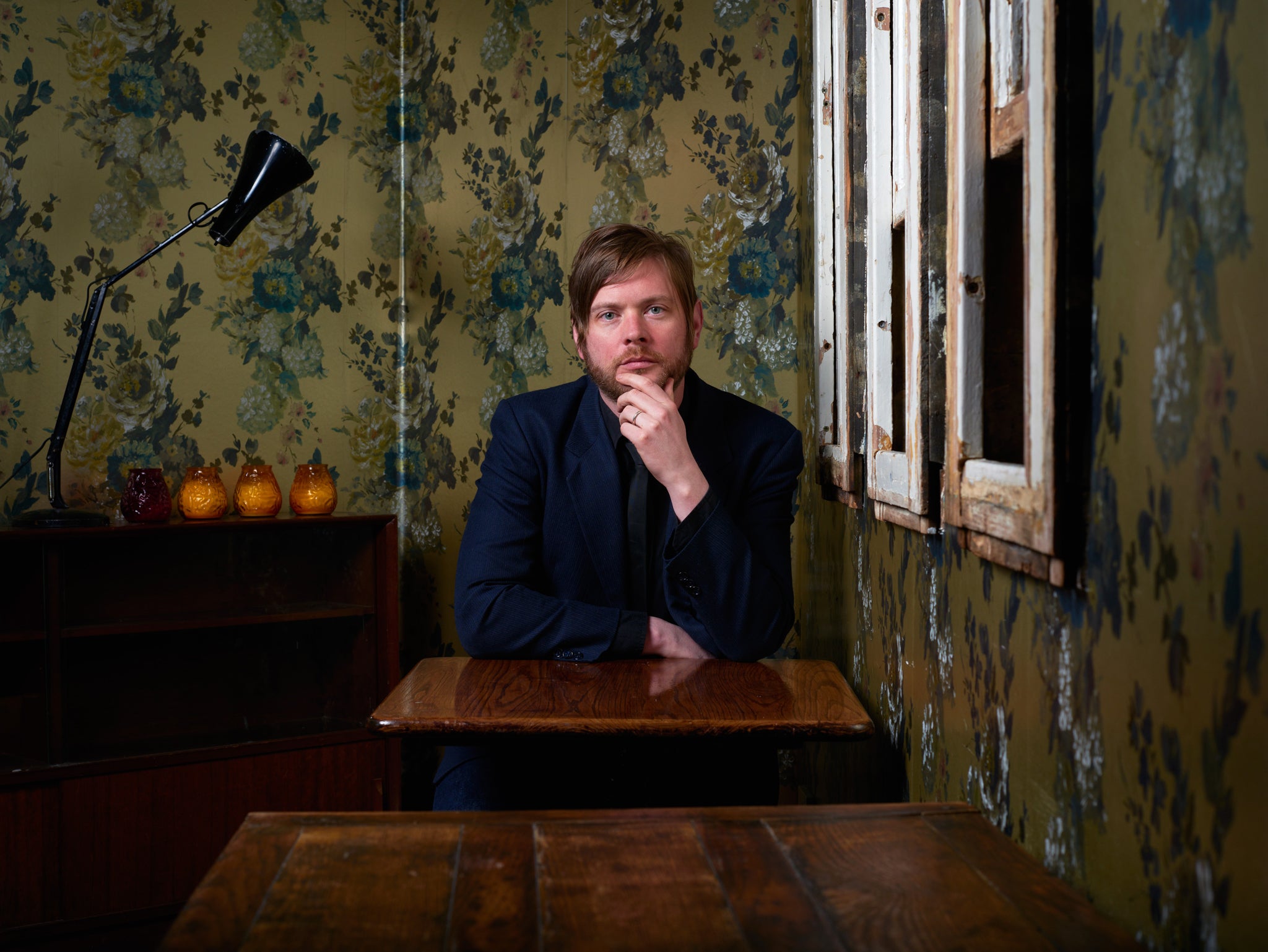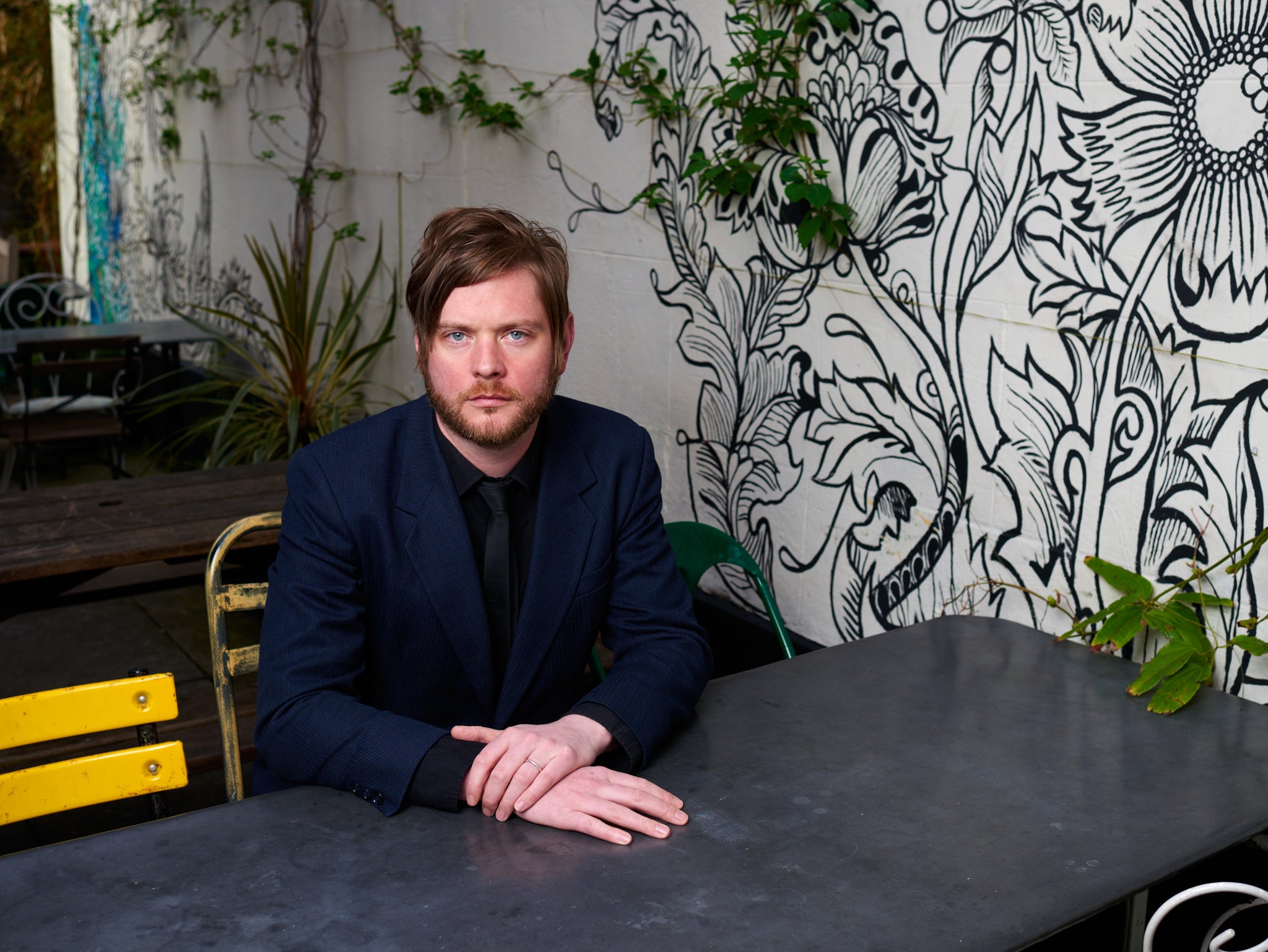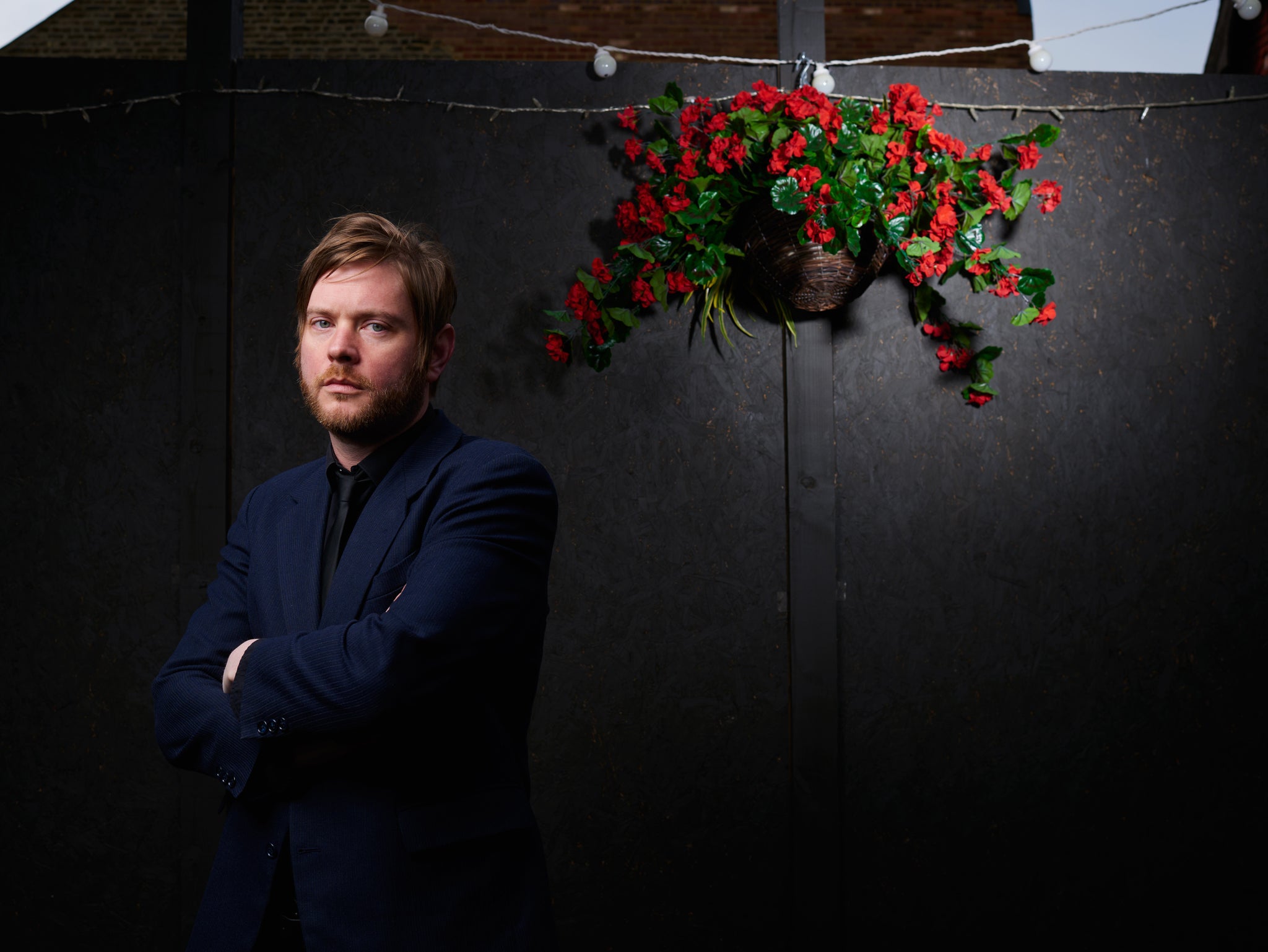Stuart Evers interview: ‘I write about the people who get by’
Stuart Evers is the new voice of ordinary ‘hard working’ Britons without a handy Waitrose

"I spend most of my time thinking about writing and reading,” says Stuart Evers as we discuss his new collection of stories, Your Father Sends His Love, at his local pub in Walthamstow. It’s no surprise to learn that literature is permanently on Evers’ mind.
Before I knew his name, I clocked him at readings and writers’ talks around London, in part because he had a distinctive haircut, in part because he exuded literary ambition.
In 2011, I saw him read one of his stories as part of an illustrious line-up of short fiction writers and, when the evening’s star attraction, Edna O’Brien, came off stage, she kissed Evers on the cheek. His first collection, Ten Stories About Smoking (2011), had received enthusiastic reviews and would win the London Book Award, but a kiss from the doyenne of Irish literature is quite an accolade.
Today, Evers is talking about how he brings ideas to fruition. “I think a lot about what’s important in a story and what isn’t,” he says. “Most of my ideas come from fragments that have lodged inside my brain. Memories, impressions, snippets of pop culture embed themselves and one day I’ll think, ‘I want to write about that’.”

The story “Frequencies”, in which a father hears sinister voices over a baby alarm, is a perfect example: “One night, my son’s alarm made a terrifying noise, so my wife and I ran upstairs. There was nothing wrong but I knew it was a story I could tell if I framed it a different way.”
In his first collection, Evers relished the challenge of weaving smoking into every story. The new book is his third in five years and, although it features characters at various personal junctures, its unifying themes reflect changes in his own life.
“These stories came about because, when my wife was pregnant, I was made redundant,” he says. “It was the first time I’d experienced true fear because it wasn’t just about me. I thought about my dad and the way parenthood adds to you. There’s the person you think you are, the person other people see, and the person you want to be. You make promises to your child: ‘I’ll never let you down. I’ll never hurt you.’ There’s a moral element to those promises because you can’t keep them all.”
Born in 1976, Evers grew up in Congleton, Cheshire which he calls “a nowhere and everywhere place, neither the North nor the Midlands, neither affluent nor dirt poor.” In his mid-teens, reading novels by James Joyce, George Orwell, and Keith Waterhouse made him want to be a writer: “Billy Liar felt like it was about my life.” While studying English at Liverpool University, Paul Auster’s The New York Trilogy and Samuel Beckett’s plays made a big impact on him but, for a while in his earl twenties, he read American short fiction to the exclusion of all else: “Stories became my passion. I read Richard Yates, Jayne Anne Phillips, Eudora Welty, Grace Paley, Raymond Carver.”

Evers’s second book, the novel If This is Home (2013), was about two teenagers who dream of leaving their northern English town for New York. Wearing cowboy boots and supping ale, he speaks passionately about authors from both sides of the Atlantic, but argues that the England he knows is missing from most contemporary writing: “I admired Zadie Smith and Hari Kunzru, when they were making a splash in the early 2000s, but they described an urban experience. Swathes of this country aren’t represented in fiction.
I wanted to write about people I identify with, people who don’t shop in Waitrose because there isn’t one for 50 miles. They’re what politicians call ‘hard-working people’ but I just think of them as people who get by.”
Reading Carver, who appears as a character in his first collection, reinforced Evers’s commitment to writing about “ordinary people in extraordinary situations” but the young English novelists Gwendoline Riley and Niven Govinden also showed him that it was possible to describe modern Britain in fresh ways. “They were the first writers I read where I thought: ‘You’re doing what I want to do’.” While developing his craft, Evers worked as a bookseller, an editor at a publishing house, and a critic. Books are central to his life and his new stories examine universal experiences.
When I tell him I enjoyed “Something Else To Say”, which delineates a form of estrangement that feels true of men in their 30s, he says: “I’m very interested in male friendship. It’s under-represented, and it’s nonsense to say men don’t talk, but what if two friends suddenly have nothing to say to each other?”
Evers dramatises this anxiety by having the story’s narrator waiting in a pub for his friend, inventing trivial topics for conversation and rehearsing lines. The friend has lost his wife and child but the narrator is vulnerable too. Near the end, the friend appears to recognise this, so I see their small talk as the basis for deeper communication. “That’s a very positive reading,” Evers says. “Other readers have said the opposite, that because the friend doesn’t explicitly discuss his loss, they’re going to keep playing this game of avoidance. I don’t think you’re wrong. I’m glad you find it hopeful.”
Evers’s snapshot stories invite multiple interpretations and leave readers imagining protagonists’ lives continuing afterwards. This is true of “Charter Year, 1972,” which presents new parents marooned in a small town, adrift from their dreams, and “Sundowners” with its adulterous young mum who will “disappear into family life”. Is Evers weighing the gains and losses of ageing?
“Absolutely. At the end of ‘Sundowners’, the characters are alive with possibilities. There are so many things they could be doing.” Are these stories designed to reward rereading? “Without incendiary scenes some stories can feel simple, but I like to think you’d miss a lot if you read them only once.”
“Your Father Sends His Love”, the longest story and the collection’s moral and emotional centre, concerns angst-ridden Simon and his famous father Bob. “Most of it’s invented,” says Evers, “but I started thinking about Bob Monkhouse after reading Lynn Barber’s interview with him. He was desperate for people to like him but, if you watch his performances on YouTube, he’s not quite coming across as he would like.” Evers shuffles past and present, portraying a relationship riven by betrayal, distance, drugs, theft and “words which affect people differently in different contexts”. Nevertheless, Evers, who’s very close to his own dad, is convinced: “Bob loved Simon. He just couldn’t understand him. It’s about the inescapable bond between a father and son.”
Join our commenting forum
Join thought-provoking conversations, follow other Independent readers and see their replies
Comments
Bookmark popover
Removed from bookmarks